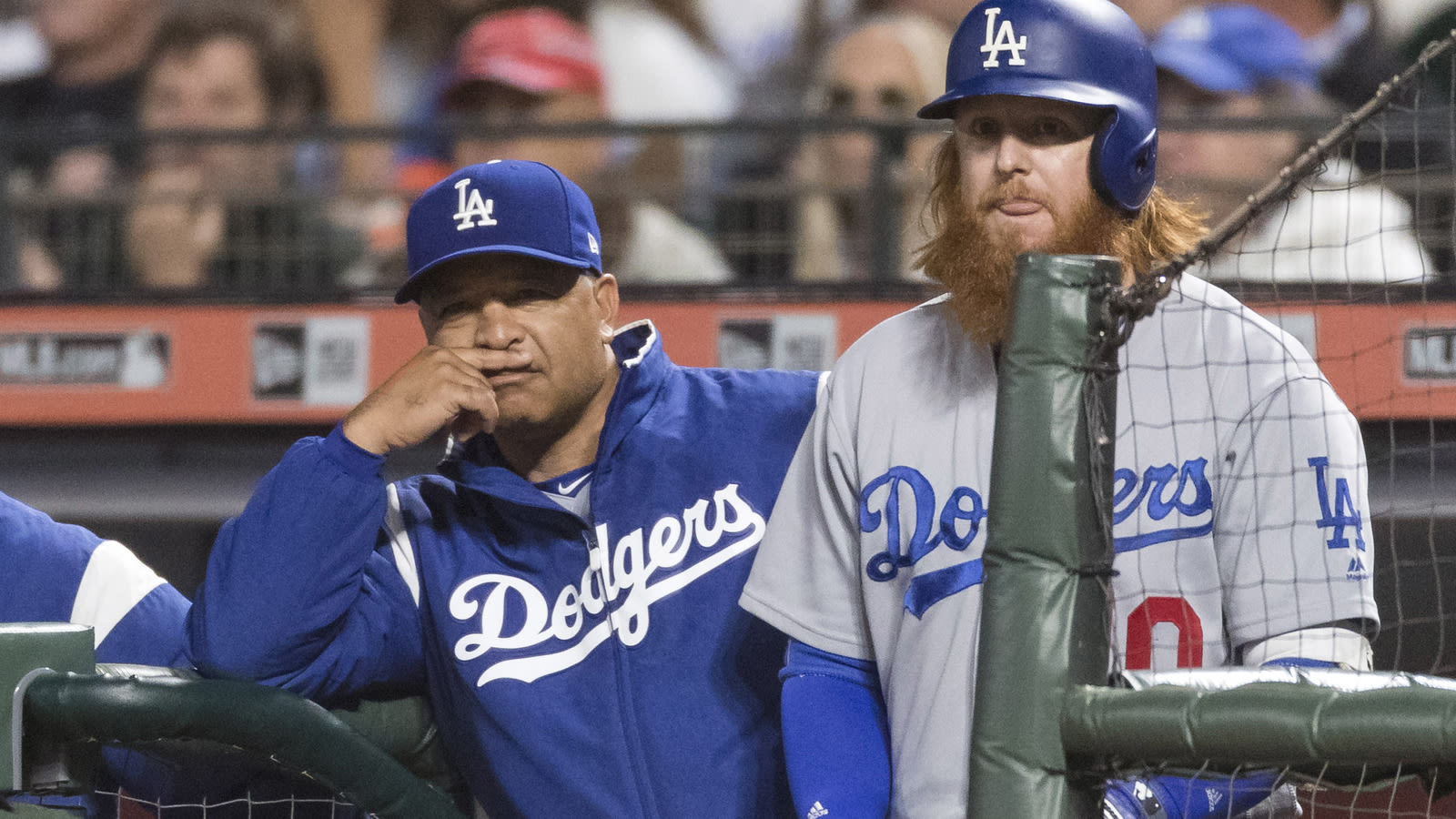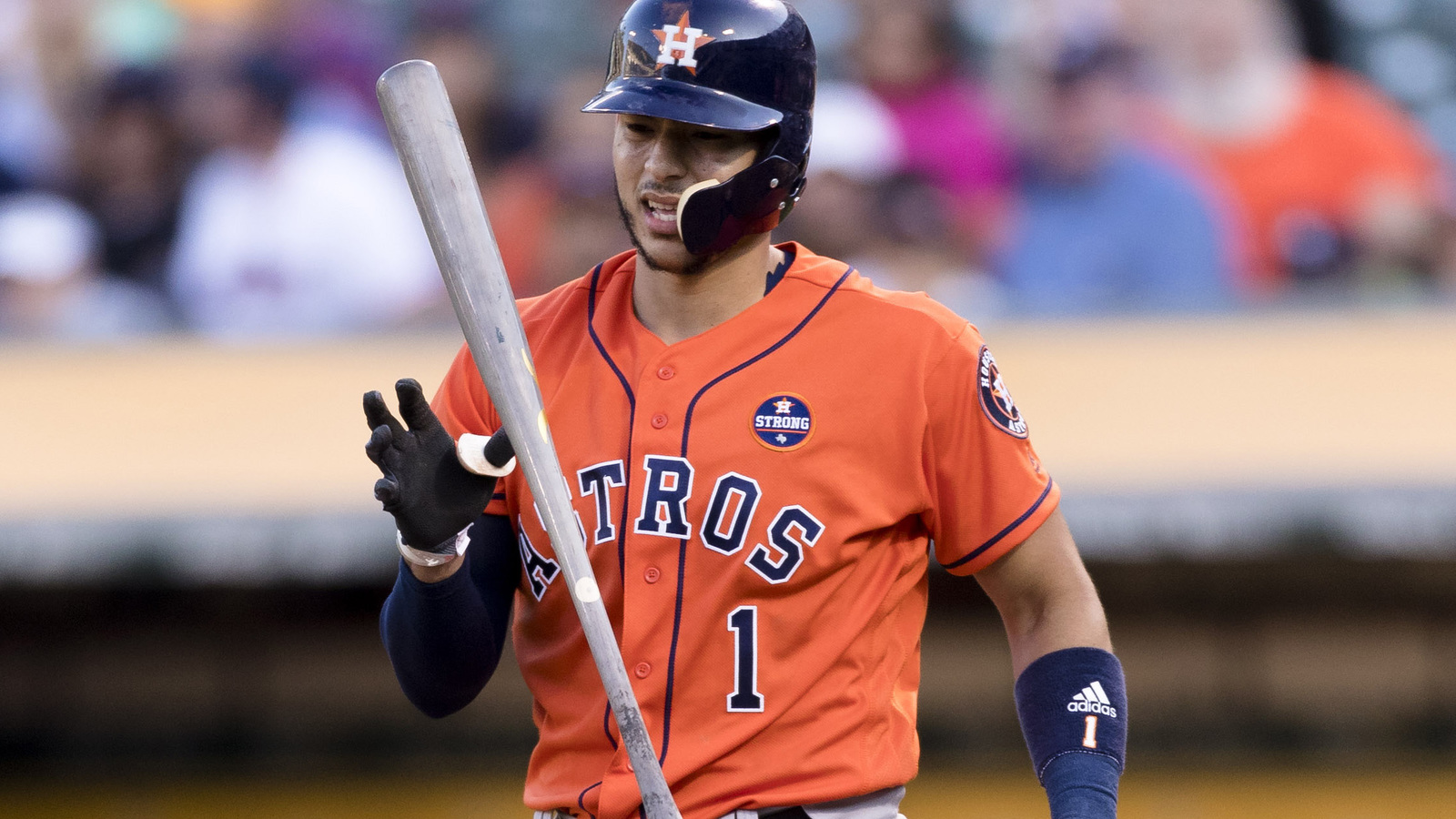
September chill hits Astros, Dodgers at worst time
If based only on the run that the Cleveland Indians have embarked on over the better part of the last month, it may be easy to forget that baseball is a sport that does not often lend itself to playing at a breakneck speed. A look at once was, compared to what currently is, for the Los Angeles Dodgers and Houston Astros gives testament to this.
The Astros dominated the first three-quarters of the year so thoroughly that they reached 30 games over .500 by early August and have not had a lead of less than 10 games in the American League West since May 28.
Meanwhile, the Dodgers managed to somehow better the impressive early returns from Houston as they dominated the heart of their schedule. From May 1 through July 31, L.A. posted an incredible 61-19 record, good for a .766 win percentage. In June alone the Dodgers won 20 of 23 games, which prompted legitimate talk of them breaking the all-time record for most wins in MLB history.
Yet now, as the final act of the regular season is set to close — while both teams still sit high in the standings — they are limping at best toward those long-reversed places in the postseason. The two teams that were once on course to become the first pair of teams to win 103 games in the same season in 114 years have suddenly gone astonishingly cold. As a result, their tickets to the World Series that once seemed so inevitable to be punched may have expired earlier than advertised.
Since the All-Star break, the Astros have broken even at .500 and entered playing the same type of ball that has made their still impressive lead in the AL West somewhat of a smoke screen. It has been such a precipitous drop that they have even lost overall home-field advantage in the playoffs. Even when they had seemingly righted the ship last week, winning seven straight games, they swiftly reversed course again via a four-game sweep at the hands of the last-place Oakland A’s. It is just the latest dip in the two-month roller-coaster ride that has arguably come to define the Astros' season as much as their early success did.
The Astros' struggles have been masked somewhat by the ebb and flow of their play, as well as their canyon-like lead in the AL West. Conversely, the meteoric fall of the Dodgers has been more like a pileup accident along the Los Angeles freeway: epically cringe-worthy but impossible to look away from.
On Aug. 25, L.A.'s lead in the NL West reached a laughable 21 games. It was not just an ordinary massive lead in a division such as the NL East, where the Washington Nationals have been chased by mostly a who’s who of the top 10 of next spring’s amateur draft. The Dodgers had a 21-game lead over the Arizona Diamondbacks, owners of the third best record in the National League and leaders in the Wild Card race. It stood to be the widest margin of difference between a potential playoff pairing in the Wild Card era.
However, the following day, the Brewers beat the Dodgers, a time when losses were occurring roughly once a week for the L.A. Then then the next day, the Brewers beat the Dodgers again. Then Diamondbacks followed suit, getting in on the act. And before you could blink, the Dodgers had suffered a four-game sweep at the hands of their closest competition in the NL West, their first series sweep of the season. Little did anyone know, even worse times were still ahead.
It was the beginning of the one of the worst tailspins in baseball history. From Aug. 26 to Sept. 11, the Dodgers dropped 16 of 17 games, all but two of which at the hands of their AL West neighbors. The 11 straight losses that came at the heart of the skid marked the longest losing streak the franchise had endured since moving to the West Coast from Brooklyn in 1958. It also stood as one more loss than the team had in both June and July — combined.

Yet it is still important to take a dose of perspective when it comes to assessing how both teams will fare when the postseason arrives. Both L.A. and Houston are set to arrive in the postseason in better condition than they have been over the last month. Injuries to Carlos Correa, Dallas Keuchel, George Springer and Lance McCullers Jr. greatly impacted the Astros' core, while the Dodgers had to deal with their standard rash of losses to the DL as well. Clayton Kershaw, Yu Darvish, Alex Wood, Cody Bellinger and Brandon McCarthy have all missed time, among others.
Given the injury and the impossible pace each team was on, it is understandable why both clubs have regressed toward mortality as the year has matured. Regardless of the cause, expectations have rightfully wavered for both teams.
A complete and total burnout is an impossibility for both teams. The Dodgers clinched their postseason appearance with their streak-breaking victory over the Giants Tuesday, and the Astros should do the same on the AL side at some point next week. That is, barring a historic collapse the likes of which hasn’t been seen since the 1964 Phillies, who blew a 6.5-game lead with 12 to play and missed the playoffs completely.
Consider that a month ago, even the harshest of critics for both teams would be hard-pressed to predict anything less than a league championship series appearance for both teams. However, with the rise of the Indians and the head-to-head excellence of Arizona over the Dodgers — not to mention the threats posed by the Nationals and Red Sox — it is reasonable to question each team’s ability to now even last that long.
While awe-inspiring regular-season efforts are fun to behold and can be harbingers of things to come, they promise nothing come October — or even late August/early September, as we have seen. The Astros show some parallels of the 2015 Cardinals. That 100-win St. Louis team carried the best record in baseball into the playoffs but performed south of .500 over the final month of the season. They were subsequently quickly dispatched by a surging Cubs team in the playoffs.
Likewise, the Dodgers were aligned with the 2001 Mariners, a squad that tied the single-season wins record. Armed with a breakout rookie in their ranks by the name of Ichiro Suzuki, whose impact in his debut year was rivaled by the arrival impression of Cody Bellinger for this year’s Dodgers, they appeared to be on a beeline for a World Series appearance. Instead, they were dispatched in short order in the ALDS by the eventual champion Yankees.
If the Dodgers or Astros are to still go on to conquer the World Series this year, they must make some history of their own along the way. The 1953 Yankees are the only team to endure a 10-game losing streak during the season and still emerge as World Series champions. Both the Astros and Dodgers pulled together double-digit win streaks this summer, so their chances at rallying this fall are not unprecedented, though certainly more complicated now.
No matter how you look at it, it is impossible to believe in either the Dodgers or Astros the same way most did just a month ago. Yes, both teams have shown just how undeniable they can be at their best, but their coinciding plummets cannot be written off or chalked up simply to the odds balancing out. Neither team is as strong right now as it was at the height of its powers, which could lead to unexpected postseason collapses from the two teams who were the clear-cut favorites just a few short weeks ago.
More must-reads:
- Dave Roberts won't scapegoat anyone for Dodgers' losing
- The seven most important series left on the MLB schedule
- The 'Houston Astros retired numbers' quiz
Breaking News
Trending News
Customize Your Newsletter
 +
+
Get the latest news and rumors, customized to your favorite sports and teams. Emailed daily. Always free!








